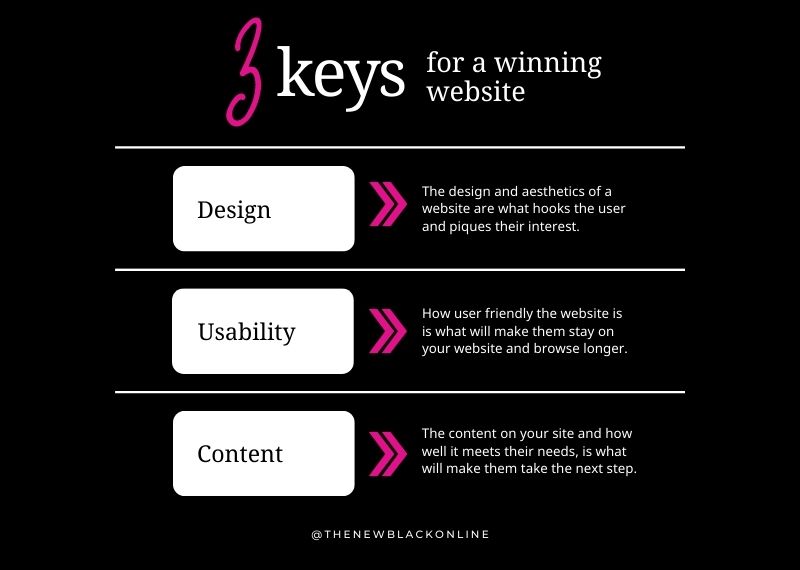
Nothing puts your website visitors off more than pages that are slow to load. If your WordPress website loads quickly your users will have a better experience which leads to more sales and conversions for you, so investing some time into increasing the performance of your WordPress website is time (and money!) worth spent.
Website speed is not only important for the user experience, it is also an important search engine ranking factor. Slow websites will rank lower in Google which could lead to missed opportunities for your business.
You can run performance tests to give you a benchmark as to how your site is performing right now. This way you have something to compare to after you’ve done these tasks. Some examples are:
- Pingdom Tools: We like this one because we can choose to test from a Sydney based server, which is the closest for our New Zealand based sites.
- GTMetrix
- Google PageSpeed Insights
These tools all give very detailed analysis of how your site could be improved. One important metric is “Largest Contentful Paint” or LCP. This is essentially the loading time as perceived by users. The fully loaded time will be slightly longer than this, but users only notice what they can see, which is what the LCP time reflects. An LCP time of under 2.5 seconds is good and is what Google recommends.
Below are 5 quick tips to increase your WordPress website performance. This isn’t an exhaustive list, there’s lots of different ways that performance can be improved, but what we’ve put below are 5 things you should be able to action easily right now:
- Review your plugin usage
- Use a caching plugin
- Optimise images
- Update all. the. things.
- Use good quality hosting
Keep on reading for more detail on each of these 5 performance tips.
Review your plugin usage
Quality matters more than quantity when it comes to plugins for WordPress websites. There’s no definitive answer on how many is too many, but if you can reduce the number of plugins you’re using, that is going to mean fewer files are loaded on your website, which could help with your performance issues. Go to your plugins list on your dashboard and do the following:
- Audit your plugin list and remove unused plugins.
- Consider the quality of the plugins you do use – check reviews, ensure they’re being actively kept up to date.
- Find replacements for plugins that aren’t up to standard
- See if you can find a single plugin that does the job of several plugins you’re currently using (likewise make sure you’re not using two plugins that do the same job! We see this all the time)
- Deactivate plugins one by one to see if any one in particular is causing the performance issues
- And remember to backup everything before making any changes to your website!
Use a caching plugin
Caching can significantly speed up your website by storing static versions of your content. Follow these steps:
- Install a reputable caching plugin – WP Rocket is our favourite, W3 Total Cache is another popular alternative Also some hosting companies have their own caching otptions – e.g. Cloudways (one of our hosting providers) has their own caching tool called Breeze
- Configure the plugin settings to enable page caching, browser caching, and object caching
- Periodically clear the cache when making changes to ensure updated content is displayed
Many caching plugins will also have the option to combine and minify your javascript and CSS files further reducing your page size and increasing speed.
Optimise images
Large and uncompressed images can slow down your website. Implement these image optimization techniques:
- Resize images to the appropriate dimensions before uploading them
- Compress images using tools like JPEGmini, TinyPNG, or plugins like Smush or Imagify
- Consider lazy loading, which defers the loading of images until they are visible on the screen. This is an option in plugins like WP Rocket and can be done using both of the iamge compression plugins above.
We have a dedicated post about image optimisation for WordPress here.
Update All. The. Things.
Keeping your WordPress core, themes, and plugins up to date is crucial for speed and security. Here’s what to remember:
- Regularly check for updates and apply them promptly
- Enable automatic updates whenever possible to ensure you’re always running the latest versions
- Make sure to take a backup of your website before performing updates in case anything breaks
Use Good Quality Hosting
Your hosting provider plays a vital role in your website’s speed and reliability. Consider these hosting factors:
- Opt for a reputable hosting provider known for high-performance servers and optimized WordPress hosting
- Look for features such as SSD storage, CDN integration, and server-side caching
- Hosting that is physically nearby your target audience can also improve performance (e.g. our managed hosting option uses Auckland based servers)
- Check reviews to ensure their support is responsive
Hopefully by following some or all of these tips you’ll see a measurable improvement in the speed of your WordPress website. Let us know how you get on in the comments below.


